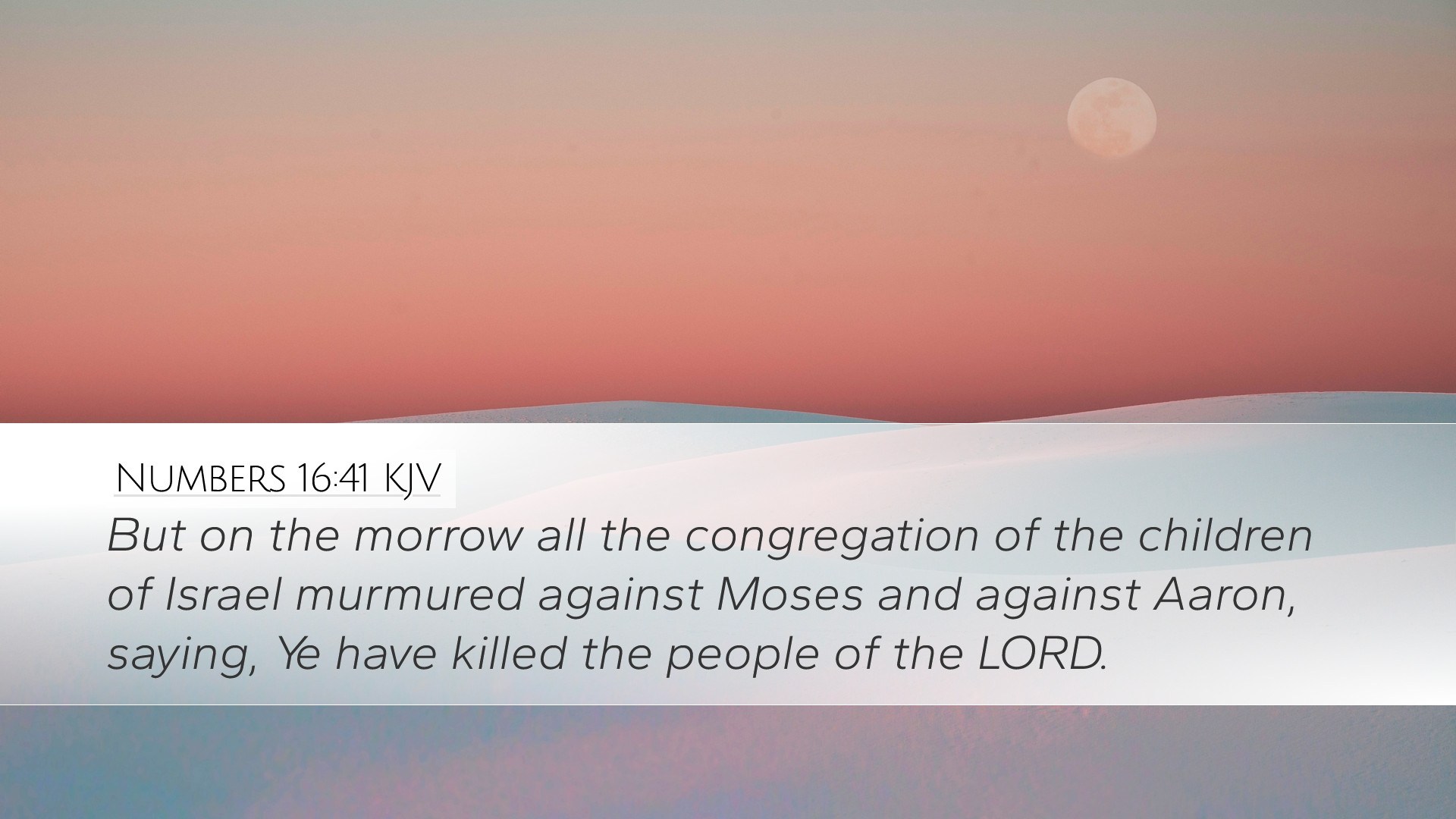Commentary on Numbers 16:41
The passage of Numbers 16:41 is a pivotal moment in the narrative of Israel's wanderings in the wilderness. It provides insight into the themes of rebellion, leadership, and divine authority. The context involves the aftermath of Korah’s rebellion, where Korah and his followers challenged Moses and Aaron's leadership, leading to severe consequences.
Historical Context
After the Lord had judged Korah and his rebel company, the children of Israel responded with dismay. The events that unfolded signify a crucial encounter with disobedience and the seriousness of God’s holiness. As the Israelites lament, they exhibit a tendency to revert to doubt and fear, a recurrent theme in their journey.
Theological Reflections
This verse raises significant theological questions regarding God's justice and mercy. The rebellion of Korah serves as a stark reminder of the consequences of defiance against divinely ordained authority. As noted by Matthew Henry:
"The people’s outcry against Moses and Aaron illustrates the persistent nature of rebellious hearts, even in face of divine judgment."
Divine Leadership
The challenge against Moses and Aaron in Numbers 16:41 also reflects a broader struggle with accepting spiritual leadership. Albert Barnes points out that:
"It is the natural inclination of the human heart to rebel against authority, particularly in spiritual matters. The Israelites' outburst underscores their failure to recognize the divine authority vested in Moses and Aaron."
The Consequences of Rebellion
Numbers 16:41 emphasizes the danger of rebellion and discontent among God’s chosen people. The reaction of the Israelites can be seen as a collective failure, as they associate the fallout of Korah's rebellion with their leaders:
- Distortion of Focus: They inaccurately blame Moses and Aaron for their plight.
- Fear and Despair: Their cries reflect a lack of trust in God’s plan and leadership.
- Call to Repentance: Such moments serve as reminders for personal and communal reflection on one’s alignment with God.
Lessons for the Faith Community
From a ministerial perspective, Numbers 16:41 holds significance for pastoral leadership. Adam Clarke emphasizes the need for leaders to remain steadfast in faith and integrity amidst criticism:
"Pastors must not be swayed by the complaints of a dissatisfied congregation but must continue guiding with God’s wisdom and truth."
Understanding Congregational Dynamics
This verse offers an opportunity for reflection on congregational dynamics and the challenges of leadership within the church. It repressively serves as a caution against allowing dissatisfaction to manifest into collective rebellion:
- Importance of Communication: Leaders are encouraged to foster open dialogue with their congregants.
- Encouraging Unity: Promoting a culture of unity can protect against the divisiveness seen in the Israelites’ response.
- Continuous Education: Providing biblical teaching helps to rectify misunderstandings about divine authority.
Conclusion
In conclusion, Numbers 16:41 serves as a poignant reminder of the consequences of rebellion, the vital role of spiritual leaders, and the call for unity in the body of Christ. The insights from public domain commentators like Henry, Barnes, and Clarke enrich our understanding of this verse, challenging pastors, students, theologians, and scholars to reflect deeply on their roles within the community of faith.


